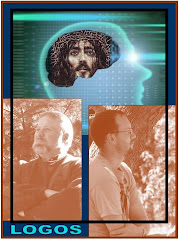Then Jesus began teaching them with stories: “A man planted a vineyard. He built a wall around it, dug a pit for pressing out the grape juice, and built a lookout tower. Then he leased the vineyard to tenant farmers and moved to another country. At the time of the grape harvest, he sent one of his servants to collect his share of the crop. But the farmers grabbed the servant, beat him up, and sent him back empty-handed. The owner then sent another servant, but they insulted him and beat him over the head. The next servant he sent was killed. Others he sent were either beaten or killed, until there was only one left—his son whom he loved dearly. The owner finally sent him, thinking, ‘Surely they will respect my son.’
“But the tenant farmers said to one another, ‘Here comes the heir to this estate. Let’s kill him and get the estate for ourselves!’ So they grabbed him and murdered him and threw his body out of the vineyard.
“What do you suppose the owner of the vineyard will do?” Jesus asked. “I’ll tell you—he will come and kill those farmers and lease the vineyard to others. Didn’t you ever read this in the Scriptures?
‘The stone that the builders rejected has now become the cornerstone. This is the Lord’s doing, and it is wonderful to see.’”
The religious leaders wanted to arrest Jesus because they realized he was telling the story against them—they were the wicked farmers. But they were afraid of the crowd, so they left him and went away.
In your face preaching

Barak Obama’s pastor has stirred controversy and condemnation over his harsh criticism of America. Jesus may have been more subtle that Rev. Wright, but the harshness of his words were not lost on these key spiritual (and to a significant extent political) leaders of his country, Israel.
Jesus accused them of criminal leadership. He laid at their feet, and the feet of their ancestors, habitual and violent rejection of God’s claim on their nation, and of Jesus himself as the final and unique messenger of God. He accused them with passion, not even waiting for their response to his question.
Who’s in control is the quintessential struggle of humanity. The first sin involved Adam and Eve taking for themselves the control of defining right and wrong. Control of land and wealth, moral and spiritual standards, traditions and customs have ignited conflicts of every imaginable level of intensity.
Accepting ultimate and rightful ownership by someone outside ourselves is the core issue for Jesus. His submission to the Father models it. He insists that we must give up any perceived rights to ourselves when he calls his followers to take up their own crosses, deny themselves, and follow him. He laments that Jerusalem would not submit to his authority so he could have spread his protective wings around them.
Recognizing that the earth is the Lord’s, that he is lord of the nations (King of kings), and that each person lives, moves and has their being in him – that none of us could exist except for him, this is the greatest spiritual challenge facing every member of the human race.
Creator and Sustainer of all that is, I choose to submit my entire person, body and soul to you. Get in my face when I am pigheaded or ignorant. Give me the grace to sacrifice my pride on the alter of humble submission to your ownership and control. - Mike Leamon
 Failure to listen
Failure to listenTeachers, preachers, we all have the same trouble. People don’t listen. Students come to class every day and daydream or write notes, or listen to music but seldom listen to the lesson. People file into church Sunday after Sunday and if you ask them on Monday what the sermon was about they have no idea. People don’t listen. (I know I am exaggerating a little.)
Jesus must have felt frustrated too. He tells a story and the disciples ask him what it means. He teaches the crowds but they only see the food. The people completely miss his message. Ironically, the people who do understand are his enemies. The religious leaders, they understand what Jesus is talking about. He is talking about them! He is calling them out in front of the whole crowd. The people don’t seem to get it, but the religious people are fuming mad. So mad they want to kill Jesus, but he crowd likes Jesus.
I find the whole situation sad. The ones who understand are so set in their ways they refuse to apply what they have heard. What would have happened if the religious leaders had repented? What would happen if, when we understand the stories we are told, we repented and changed our ways? It is easy to get mad when you are the butt of the joke or story, but we have another choice. We can learn the lesson of the story and change our direction. We each have the power to change the story and write a different ending.
Author of the salvation story, thank you for telling me how my life’s story ended and offering me the opportunity to change the ending. With your help I want to continue to revise the ending of my story so the ending gets better and better. - Dan Jones






























